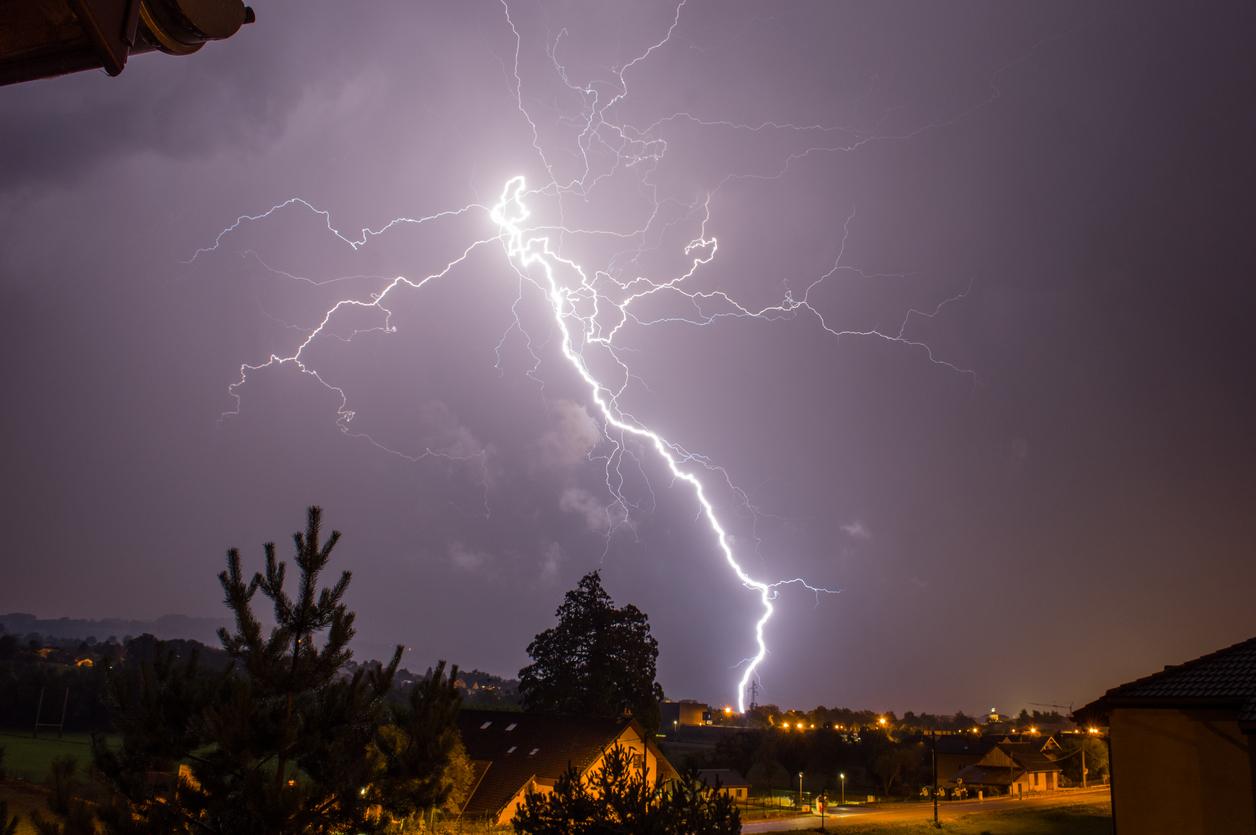Beware of the risk of thunderstorm asthma this week, warns the National Aerobiological Surveillance Network.

- Due to the thunderstorms forecast for midweek and grass pollen levels, the risk of thunderstorm asthma is high this week.
- Thunderstorm asthma can affect anyone, whether they have asthma or not.
- “The risk of allergy is high throughout the country except in a few Breton departments and around the Mediterranean where it is average,” adds the RNSA.
Thunderstorms, high temperatures and high levels of grass pollen are on the menu this week. Faced with this cocktail, the RNSA warns against the “risk of thunderstorm asthma” in his last updated June 17, 2024.
Thunderstorm asthma: a significant risk this week
For the body responsible for analyzing the air content of biological particles such as pollen and mold, the “risk of thunderstorm asthma” will be again “very present in the middle of the week under the big storms”This phenomenon, first described in the 1980s in England and Australia, causes bronchospasms. That is to say, a sudden, involuntary and lasting contraction of the smooth muscles of the bronchi leading to asphyxia by obstruction of the airways.
In a communicatedthe RNSA details the origin of this respiratory disorder: “During thunderstorms, the pollen concentration increases rapidly near the ground with strong downdrafts that carry grass pollen from the upper air layers to the air layers close to the ground. Due to the high humidity in the air, gusts of wind and changes in the electric field of the atmosphere, the pollens become engorged with water and burst. The result is fine allergenic particles that can penetrate even deeper into the lungs.”
While those most at risk are asthmatics, individuals with grass pollen allergies, and children and young adults, caution is advised for everyone. Indeed, this respiratory disorder can also occur in people who do not suffer from asthma or pollen allergies.

The Breton and Mediterranean departments will breathe a little more easily
In addition to the high risk of thunderstorm asthma, the RNSA also warns of a high risk of allergy to grass pollen. “across the country except in a few Breton departments and around the Mediterranean where it is average”However, some showers could provide temporary relief for allergy sufferers.
Furthermore, the risk of allergy for other flowering herbs (plantain, nettle and sorrel) and for chestnut, oak and olive pollen is low. However, one should be wary of flowering lime trees which could cause attacks in their vicinity, according to experts.















